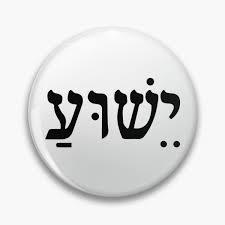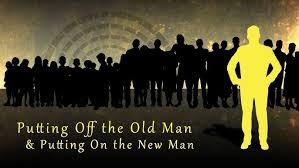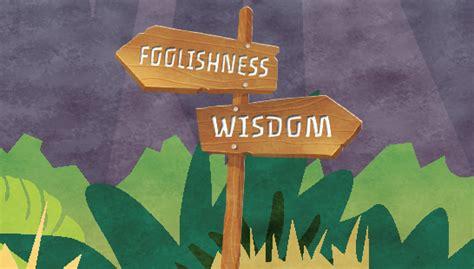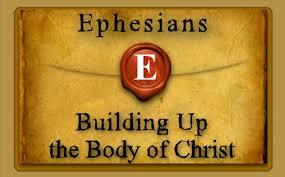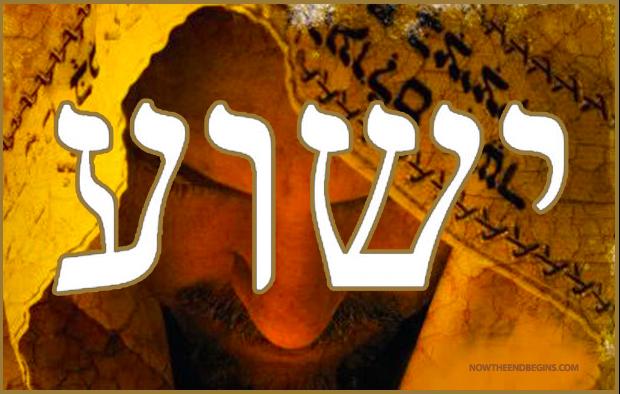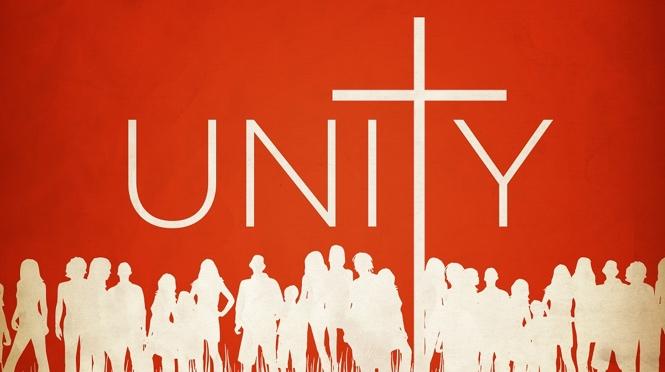Br – Walking in Wisdom 5: 15-17
Walking in Wisdom
5: 15-17
Walking in wisdom DIG: How is walking in wisdom related to being filled with the Ruach Ha’Kodesh? Why is it important for believers to walk in wisdom? Specifically, how can we walk wisely? What is the difference between knowing God’s will and understanding it?
REFLECT: Who do you need to start spending more time with? Describe the difference between spending your time and investing your time? Are you asking ADONAI daily for wisdom? If not, why not? In what ways are you to love the Lord? Who can you tell?
If any of you lack wisdom, let him ask of God, and it will be given to him (James 1:5).
The word fool commonly refers to a person who acts unintelligently and irresponsibly. But Scripture defies a fool as a person who says in his heart. There is no God and who is morally corrupt, doing abominable deeds (Psalm 14:1). The fool is the person who lives apart from ADONAI – either as a theological or practical atheist or as both, denying God by his actions as well as His words. The fool is the person who rebels against God.
Because mankind is born separated from YHVH and with hearts that are naturally against Him (Romans 5:8 and 10; Ephesians 2:3; Colossians 1:21), we are born spiritually foolish. Because, although they know who God is, they do not glorify him as God or thank him. On the contrary, they have become futile in their thinking; and their undiscerning hearts have become darkened. Claiming to be wise, they have become fools (Romans 1:21-22)! Now the natural man does not receive the things from the Spirit of God – to him they are nonsense! Moreover, he is unable to grasp them, because they are evaluated through the Spirit (First Corinthians 2:14). The natural man has the most important things in life exactly reversed. Consequently, he thinks foolishness is wisdom and wisdom is foolishness (see the commentary on First Corinthians, to see link click An – The Foolishness of Worldly Wisdom).208

Live wisely: Therefore, walk in wisdom, not unwisely (5:15). The word therefore immediately takes us back to the apostle’s call for believers to walk as those who have been raised from the dead and are living in Messiah’s light (5:14). It also reaches back even further to build upon his call for believers to be imitators of their heavenly father (5:1). Believers are to walk wisely, rather than unwisely because we are God’s beloved children (5:1-2). Speaking to believers, James said: If any of you lack wisdom, let him ask of God, who gives to all mankind generously and without reproach, and it will be given to him (James 1:5). Paul prayed that the Colossian believers would be filled with wisdom and understanding and that they would let the word of Messiah richly dwell within them, with all wisdom and teaching and admonishing one another (Colossians 1:9 and 3:16). Instead of letting the world mold us, we will then be able to lie the Ruach and the Word renew our minds for walking in the blessings of Yeshua (see the commentary on Romans Dc – Responding to the Mercies of ADONAI).
If it had not been written centuries before the time of Paul, Proverbs 2 would appear to be a commentary on Ephesians 5:15. Throughout the chapter the writer of Proverbs speaks of walking in the wise path and the wise way and of not going into the way of the wicked or straying into the company of evil people. Similarly, Psalm 1 speaks of the blessed man as the one who does not walk in the counsel of the wicked, not stand in the path of sinners nor sit in the seat of scoffers. His delight is in ADONAI’s Torah and on it he meditates day and night (Psalm 1:1-2). The best way for believers to have the wisdom of God is to saturate ourselves in His Word and separate ourselves from the world, not setting our hearts on the wrong things. Paul told Timothy, for example, that those who want to get rich fall into temptation and a snare and many foolish and harmful desires which plunge them into ruin and destruction (First Timothy 6:9).
No one can live without a god of some sort, and the spiritual fool inevitably substitutes a false god for the true God. He creates gods of his own making (see the commentary on Isaiah Hy – Worship the LORD, Not Idols), and, in effect, becomes his own god, his own authority in all matters. The way of a fool is right in his own eyes (Proverbs 12:5), and therefore he determines right and wrong and truth and falsehood entirely by his own fallen thinking and sinful inclination.209
Because life is short: Use your time well. The word time, here, is not chronos, meaning an orderly account, but kairos, meaning time as regarded in its strategic, seasonable and opportunistic seasons. The idea is not to make the best use of time, as such, but of taking advantage of the opportunities as they present themselves.210 Sometimes procrastination is a legitimate response to a trivial task. But because love is what matters most, it takes top priority and use your time well. Why is now the best time to express love? Because you don’t know how long you will have the opportunity. Circumstances change. People die. Children grow up. You have no guarantee of tomorrow. If you want to express love, you had better do it now. Knowing that one day you will stand before God, here are some questions we all need to consider: How will you explain those times when projects or things were more important to you than people? Who do you need to start spending more time with? What do you need to cut out of your schedule to make that possible? What sacrifices do you need to make? The best use of life is love, the best expression of love is time. The best time to love is now.211
And the days are evil: for these are evil days (5:16). The word evil, here, is not kakos, evil in the abstract, but poneros, evil in active opposition to good. We have little time and much opposition. Our opportunities for freely doing righteousness are getting limited. When we have the opportunity to do something in God’s Name and glory, we should do so with all that we have. Paul may have specifically had in mind the corrupt and depraved living that characterized the city of Ephesus. The believers there were surrounded by paganism and infiltrated by heresy (4:14). Greediness, dishonesty, and immorality were a way of life in Ephesus, a way of life in which most of the believers themselves had once been involved and to which they were tempted to return (4:19-32 and 5:3-8). Sound a lot like today, doesn’t it.212
Try to understand: So don’t be foolish, but try to understand (5:17a). Understanding suggests using our minds to discover and do the will of God. Too many believers have the idea that discovering God’s will is a mystical experience that rules out clear thinking. But this idea is wrong . . . and dangerous. We discover the will of God as He transforms the mind (Romans 12:1-2); and this transformation is the result of the Word of God, prayer, meditation, and worship. Since YHVH gave you a mind, He expects you to use it. This means that learning His will involves gathering facts, examining them, weighing them, and then praying for His wisdom (James 1:5). ADONAI doesn’t merely want us to know His will; He wants us to understand His will.213
The plan of God for your life: What the Lord wants you to do (5:17b NLT). The Father has certain hopes and aspirations for his children, most notably that we would all walk in His good plan for our lives. The will of God should include all the areas discussed by Sha’ul, such as our speech, our thoughts, and our actions. We have a basic choice every day; will it be the values of the world or the will of the Lord that we follow? The Rabbi has already discussed many important details in regards to our personal walk with YHVH. He will now address the implications of the Messianic life in such areas as marriage, family, and our work.
Biblical faith is not just meant to be a religion expressed only in a house of worship. It is also extremely practical as we apply the wisdom of God to every aspect of our existence. Not surprisingly, the B’rit Chadashah, follows the Jewish approach. It takes a holistic perspective of life and faith. The first century Greek philosophies compartmentalized aspects of life into separate categories. For example, religion was distinct from work. The Gnostics even drew the division so strongly as say that the soul is good, but anything material is innately evil. Unfortunately, many “religious” people today have the same Greek attitude of not mixing their spiritual faith with their everyday life. The biblical view is that everything comes from ADONAI and we are stewards of His gifts. It is summarized in the Sh’ma (see the commentary on Deuteronomy Bw – Sh’ma Isra’el) prayed three times daily by observant Jews: You shall love ADONAI your God with all your heart, and with all your soul, and with all your strength.214
Dear Heavenly Father, Praise You that You are totally wise in all ways, about everything including what will happen in the future (Daniel 2 and 7, Revelation 19). You even can see into people’s hearts to understand the motives behind someone’s actions. For ADONAI does not see a man as man sees, for man looks at the outward appearance, but He looks into the heart (First Samuel 16:7).
True wisdom says that loving you with all my heart, and with all my soul, and with all my strength is the wisest thing to do! Your great wisdom is guided by Your steadfast love (Psalms 63:3). All that You tell me to do or not to do, is the wisest and best advice. Your wisdom comes from the wise and loving heart of our omniscient, Almighty Father who loves His children so much that He knowing gave His own son to suffer immense shame and pain that Meshiach Yeshua might redeem thru His blood (Ephesians 1:3-7) those who love Him. He who did not spare His own Son but gave Him up for us all, how shall He not also with Him freely give us all things (Romans 8:32)? In Messiah Yeshua’s holy Name and power of His resurrection. Amen






